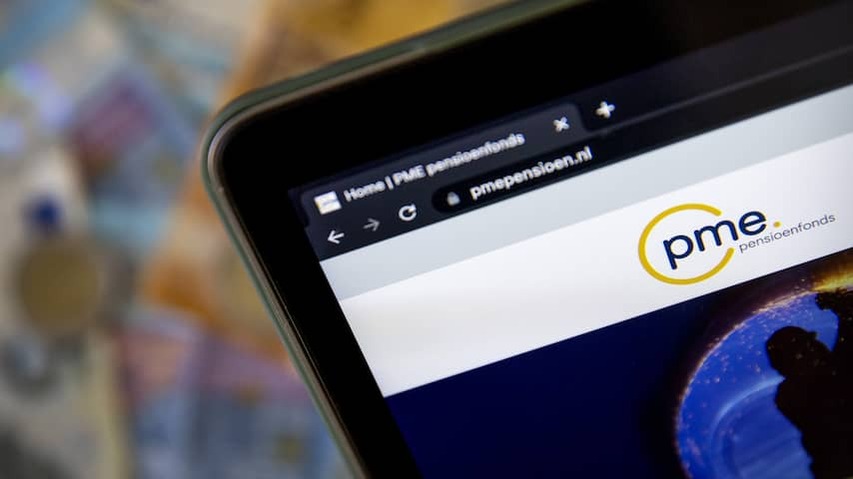
PME, one of the largest pension funds in the country, is stopping investments in hundreds of companies because they no longer fit its investment criteria. This is in addition to the 112 companies, including Nestlé and Dupont, from which the metal fund already parted ways last year.
That’s what director Eric Uijen tells NU.nl in an explanation of the annual report that will be published on Thursday. The decision by PME, which has more than 600,000 members, is a result of drawing up stricter criteria for investments.
In addition to return and risk, the fund also looks at what a company does in the area of climate and human rights, among other things. For example, in 2021 it already parted ways with companies that produce oil and gas. More companies will be added to that list. PME does not name names, because this is company-sensitive information.
PME is not the only fund that is scrutinizing its investments. ABP, the largest pension fund in the Netherlands, decided to no longer invest in some American tech companies, including Tesla and Facebook parent company Meta. This is due to ethical issues and poor governance.
Whether the metal fund also excludes these companies, it does not want to say. “What we can say is that we see that certain companies have recently adjusted their policies in the area of climate or diversity. Then we look at whether we want to continue to invest in them,” says Uijen.
PME is not afraid that the return will suffer as a result. According to the top executive, pension funds look at investments for the long term. And issues such as climate and good governance must be taken into account in order to make an estimate of what the long-term return will be. For example, according to PME, the decision to no longer invest in fossil fuel companies has not led to lower revenues.
Possible More Investments in Defense
What the fund is looking at are extra investments in defense companies. For years, such investments have been heavily debated. But due to Russian aggression and an American government that questions military support to Europe, the call to invest in its own security is growing louder in the Netherlands.
In addition, some companies that also make defense equipment, such as Fokker or VDL, build up the pensions of their staff at PME. “We receive questions from our supporters about whether we want to invest in them, for example during information evenings.”
What is important, according to Uijen, is that there is a stable sales market for those companies. In practice, this mainly means that the government must be a loyal customer, since weapons and defense systems are mainly sold to governments. “If the government pursues consistent multi-year policy, we will invest in it. But we also look at whether democracy and human rights are observed.”
Relief about ‘No’ to referendum New Pension System
A proposal for a referendum on the new pension system was rejected by the House of Representatives on Tuesday. That decision provides relief at PME and also at other funds.
Member of Parliament Agnes Joseph of NSC wanted employees and pensioners to be able to decide for themselves whether their accumulated pension money would be transferred to the new system. This is because the new system entails more risk, according to Joseph.
But the pension sector, supervisors and advisors of the Council of State tore the plan apart. They argue that allowing two systems to coexist leads to unworkable situations, higher costs and lower benefits.
“We are pleased that the House of Representatives has realized that the plan is unfeasible,” says PME director Eric Uijen. “This would turn out worse for participants and pensioners.” However, PME says it wants to continue talking to critical Members of Parliament.
Trump Causes Unrest at Pension Funds
Last year, PME achieved an 8.7 percent return on its investments, as much as the year before. But in the first quarter of this year, the fund had to accept significant losses due to falling stock prices. It cost the metal fund billions.
The erratic policies of Donald Trump, who took office in January, played an important role in this. The American president soon came up with import duties for various countries, which caused unrest on the stock markets.
Stock prices are also under pressure in the second quarter due to the policies of the American government. Where Trump initially focused mainly on China, Canada and Mexico, he started a trade war with almost all countries worldwide at the beginning of April. This caused an unprecedented decline in prices, although they have since recovered.
“We don’t immediately panic due to a poor quarter and don’t make adjustments very quickly. It is also not the case that anyone who retired on April 2 suffered much from the falling investment results in the first quarter,” Uijen explains.
“However, it creates uncertainty. The way the American government now looks at the world is different from what we have seen in the past eighty years. The country is moving from a democracy to an autocracy. It is a country in which we should no longer simply recognize our friend. And we have to learn to deal with that.”